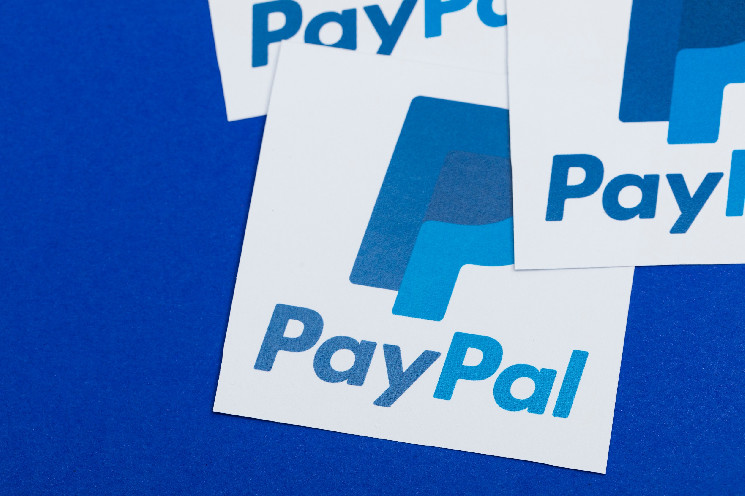PayPal updated its website to indicate the rollout of its “Cryptocurrencies Hub,” a new feature allowing users to hold and interact with Bitcoin and other cryptocurrencies directly from within their accounts. The launch comes just days after the payments giant unveiled its $PYUSD stablecoin, which will likely play a vital role in the new feature.
PayPal Adds New Feature
PayPal has recently updated its terms and conditions to include Cryptocurrencies Hub. The feature will enable users to buy and sell cryptocurrencies and make purchases using the funds stored in their PayPal accounts.
It will also facilitate the conversion between the recently launched PayPal USD ($PYUSD) stablecoin and other crypto assets. Moreover, it will allow users to use the proceeds from the sale of cryptocurrencies to make purchases through PayPal. The company wrote in the update:
“If you establish and access the Cryptocurrencies Hub, you will be able to hold a Crypto Asset balance, and buy, sell, receive, and send Crypto Assets, including in transactions where the proceeds from a sale of Crypto Assets will be used to pay for purchases through PayPal, and to convert between $PYUSD and another Crypto Asset.”
However, it is worth noting that users will not hold the digital assets themselves. Instead, blockchain infrastructure firm Paxos or other authorized service providers will perform custody, trading, and transfer services for these cryptocurrencies.
While this new feature is undoubtedly exciting, not all PayPal users will have immediate access to it. The company will decide on a case-by-case basis who will explore this new offering.
To be eligible, users must have a personal PayPal account and a Balance Account in good standing. Additionally, PayPal will verify the necessary identifying information, such as name, physical address, date of birth, and taxpayer identification number.
PayPal may require additional information from users to verify their identity, such as a copy of a government-issued photo ID or proof of residency, like a utility bill. In some cases, users may even need to provide biometric information for identity verification.
Once the Cryptocurrencies Hub is launched, it will be directly linked to the user’s existing PayPal account and can be accessed using the same credentials. “Your login credentials for your personal PayPal account act as the credentials to access your Cryptocurrencies Hub as part of your Balance Account,” PayPal said.
PayPal’s Launch of Stablecoin Raises Concerns
The new feature from PayPal comes just days after the company announced that it is rolling out its $PYUSD stablecoin soon. The dollar-pegged asset, issued by Paxos, will be backed by US dollar deposits, Treasury bills, and similar cash equivalents.
As reported, the launch of PayPal’s stablecoin could be significant for the future of cryptocurrencies. PayPal alone has 420 million users. And if a meaningful portion of the company’s user base embraces its stablecoin for low-fee transactions, merchants will follow suit, which could further drive crypto adoption and the use of digital assets for payments.
This is the Ethereum contract address for PayPal's stablecoin.
— RYAN SΞAN ADAMS – rsa.eth (@RyanSAdams) August 7, 2023
I can't believe i get to tweet that.
We've come so far. pic.twitter.com/S6kSqcV4ut
However, there are some opposing views. Specifically, some in the crypto community have voiced concern about its potential impact on decentralization and personal control of assets.
Smart contract auditors have pointed out that the $PYUSD smart contract includes functions like “freezefunds” and “wipefrozenfunds,” which they consider to be examples of centralization attack vectors in Solidity contracts.
“Isn’t this basically a centralisation attack vector in solidity contracts?” Web3 advocate and Twitter user @_GT27 said in a recent tweet. “Not sure about this- but read about it using an old contract standard too?”
PayPal launched $pyUSD
— GT (@_GT27) August 7, 2023
> First stable by payment processing giant
> Sees code has 'freezefunds' and 'wipefrozenfunds' function
Isn't this basically a centralisation attack vector in solidity contracts?
Not sure about this- but read about it using an old contract standard too?
Do you think PayPal’s stablecoin will accelerate crypto adoption? Let us know in the comments below.
 tokenist.com
tokenist.com
